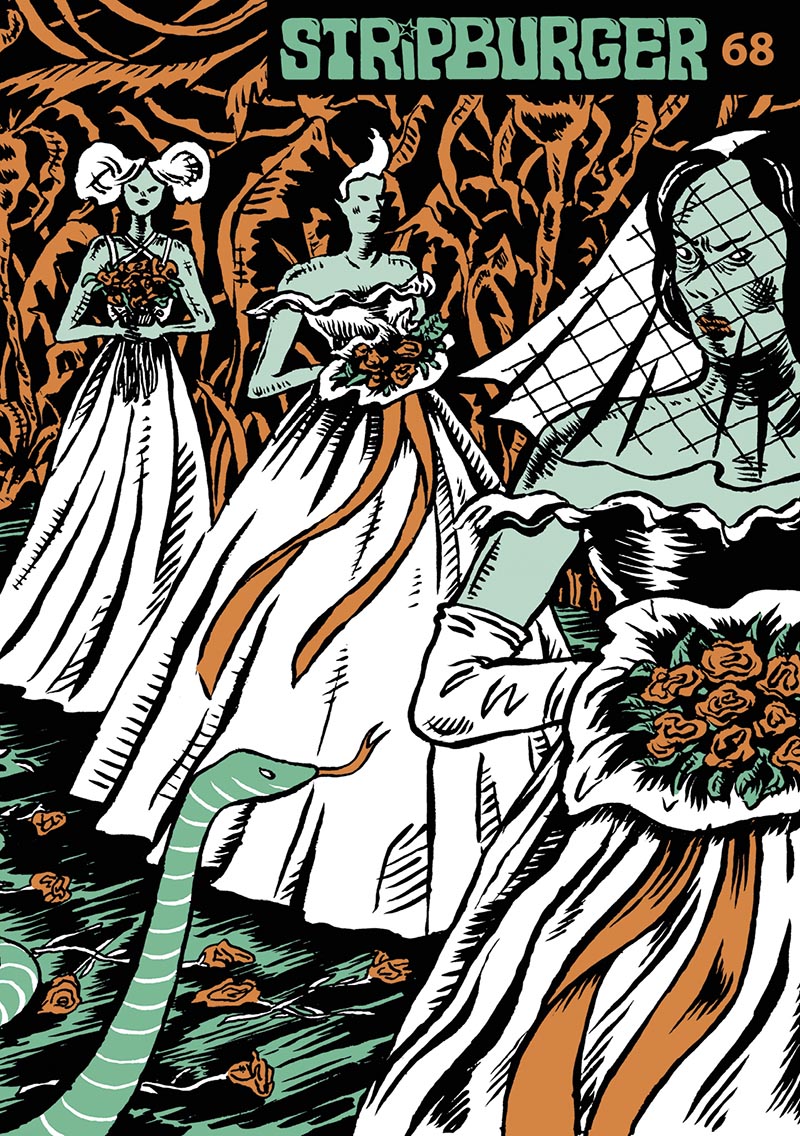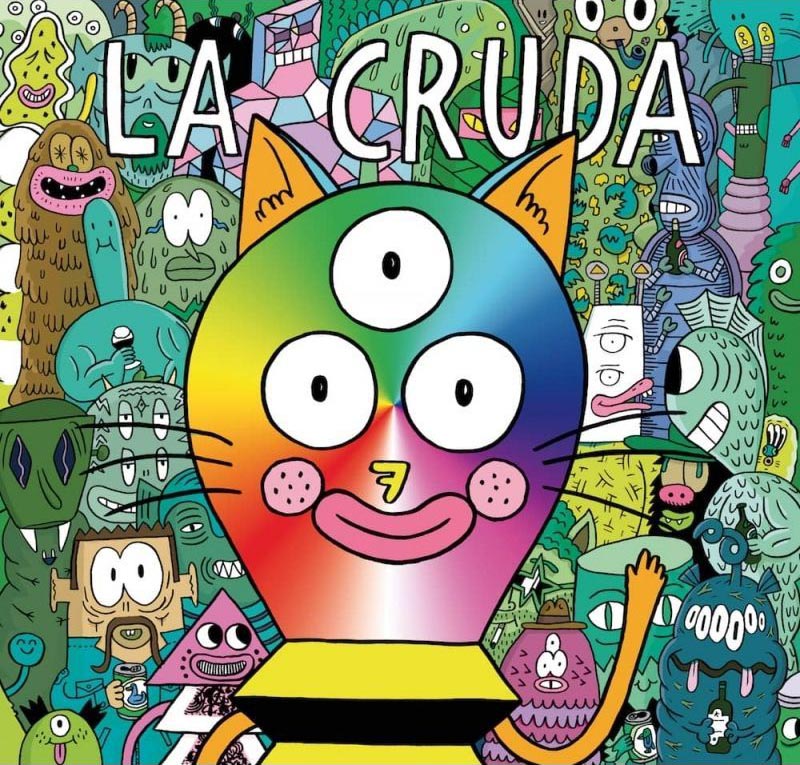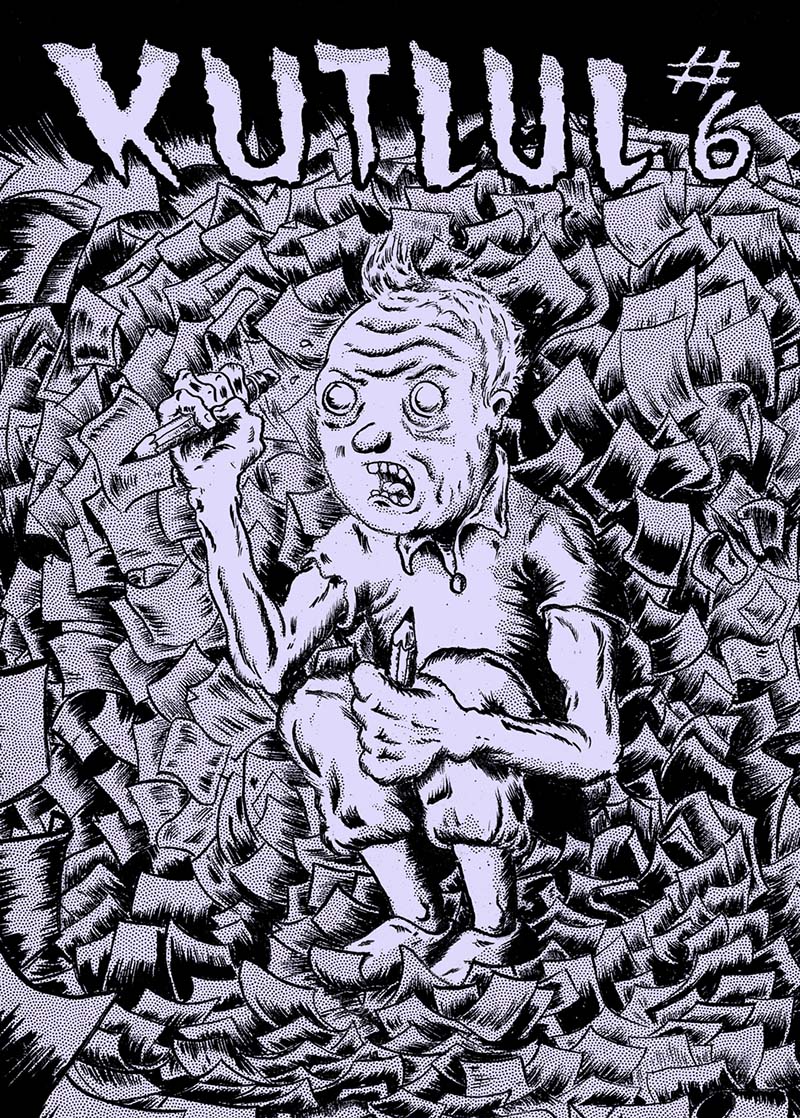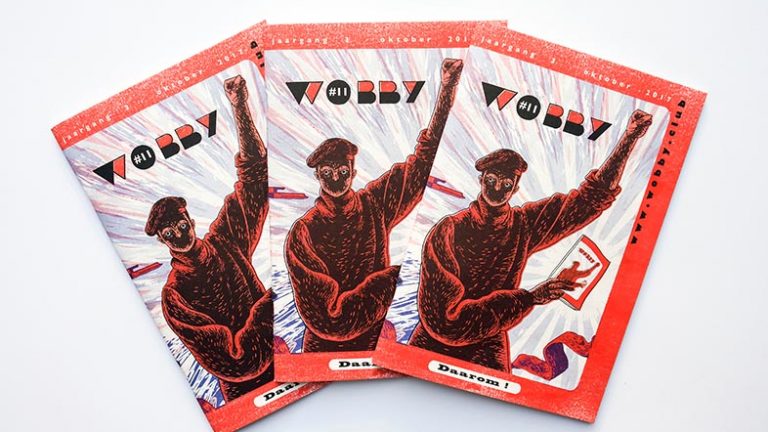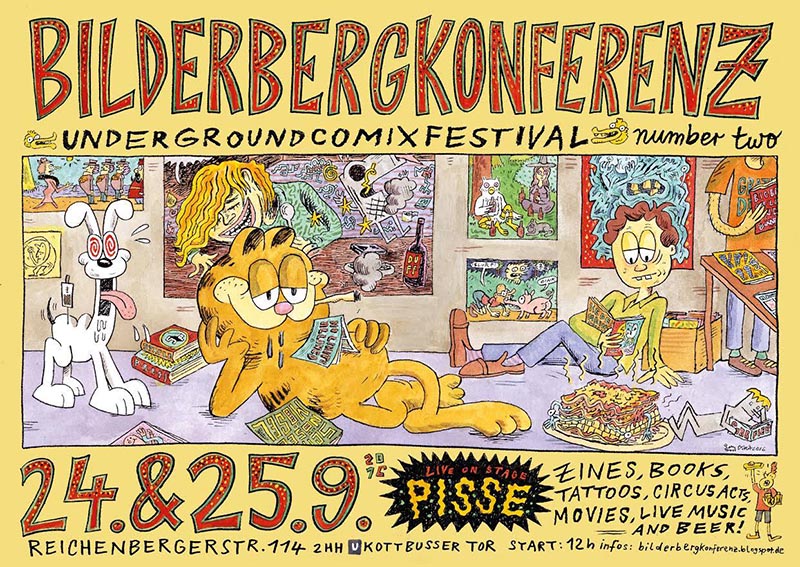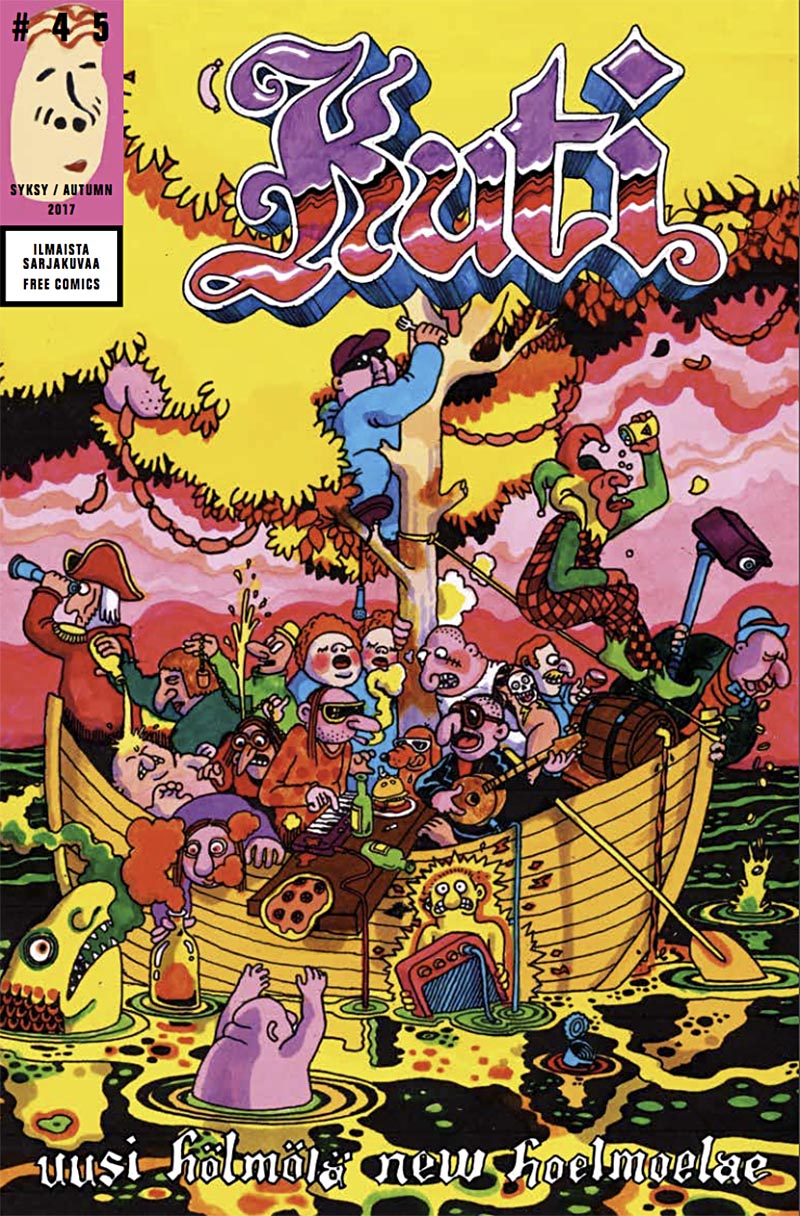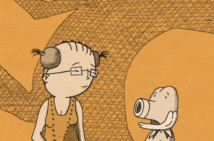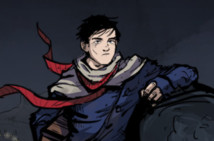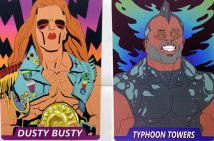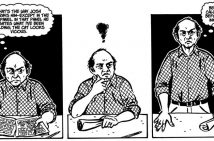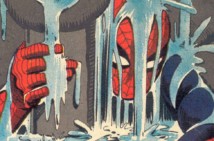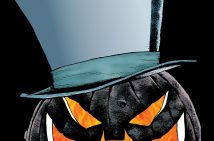Submarine Channel

European Underground Comic Mags
Top5's
European Underground Comic Mags
In the digital age, anyone can self-publish. But as with vinyl, printed matter will never die. So for every webcomic by the latest talent you will find an old-fashioned hard copied underground comics magazine. That is, of course, if you know where to look. So let us help you on your way with this selection of the most interesting zines in Europe.
By Tonio van Vugt and Natasja van Loon
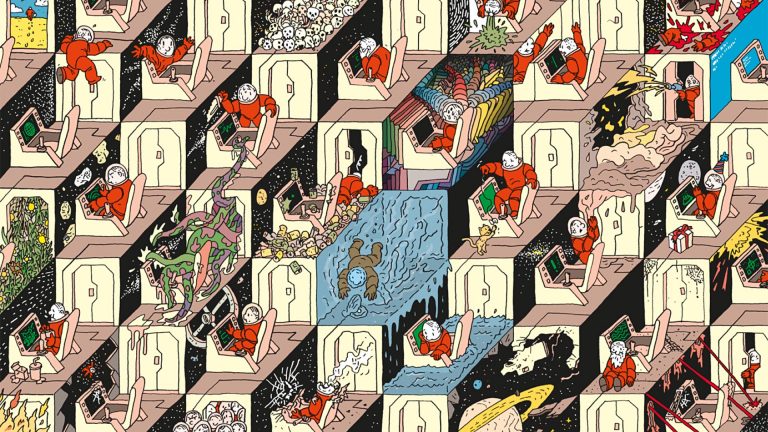
(Cover image and this image both from Kuti 43).
Stripburger, Slovenia
Who would have thought that a little Balkan state like Slovenia is home to one of the most acclaimed underground magazines ever? Well, obviously everyone who has a taste for great sequential art born in obscurity, because Stripburger is kinda legendary in those circles. Not only is Stripburger currently one of Europe’s oldest zines –it was founded in 1992– but it is also one of the very few underground zines to be awarded ‘best fanzine’ in 2001 by the prestigious comics festival of Angoulême. Stripburger publishes comics in a wide variety of styles and techniques, but the quality of the artwork and storytelling has been consistently top notch. So it should hardly be surprising that the mag published many extremely talented comic artists like Jakob Klemenčič, Lars Fiske, Marcel Ruijters, Mike Diana and Julie Doucet. Hell, they even had Robert Crumb once.
La Cruda, Spain
La Cruda is a collective of comic artists based in Barcelona, more or less similar to the Dutch comic collective Lamelos in both artistic style and physical presentation. Like Lamelos they make cheerful, slightly anarchist artwork in bright colors. In 2010, when The Netherlands were the main guest at the Spanish comic festival Ficomic, both collectives collaborated in a grand Cardboard Robot Battle in the streets of Barcelona. They also co-created an exhibition that was as joyous, colorful and anarchistic as both their signature styles.
La Cruda is also the name of the magazine which was founded by the Spanish collective in 2008. It has played a big part in their extensive collaborations with international artists like Moebius, Brecht Evens, Alison Bechdel and Typex. Any issue of La Cruda is guaranteed to make you happy. (And while you’re at it, check out those Lamelos guys as well!)
Kutlul and Wobby, The Netherlands
How to explain the name of this Rotterdam-based underground comics magazine to the non-Dutch? ‘Kutlul’ is what we call a portmanteau, two separate words that form a new word with a new meaning. Kut means cunt and lul means dick – so in a sense it is a gender neutral word. The magazine itself is not for the faint of heart. The content is raw and edgy and the black and white drawings are vivid and explicit, conceived by authors like Joost Halbertsma, Dirk Verschure and Maia Matches, who ‘celebrate bad humor, weird comics and the pure joy of drawing’.
Kutlul is a striking counterpoint to another noteworthy Dutch small press zine, Wobby, made by Tilburg artist Jeroen de Leijer and featuring artists like Berend Vonk, Bart Schoofs, and Eva Stalinski. Wobby is much more focused on aesthetics in its exploration of the possibilities offered by the risograph – a new, hot printing technique that resembles a full color copier.
Fitting for a true underground zine, Kutlul has no website, but it can be purchased online at Staalplaat.
Bilderberg Konferenz, Germany
As a comics country Germany’s star is rising quickly. The amount of Germans interested in comics is booming, both books and fairs are increasingly popular and as a result more and more talented German artists, like former underground artist Ulli Lust, have found their way to an international audience. The German underground comics festival Bilderberg Konferenz is based in Berlin, a ‘100% DIY comic feast with absolutely no sponsors backing it up.’
The accompanying magazine with the same name reflects the punk-rawness and artistic autonomy the festival values so highly – you wil find for example a playful satirical appropriation of mainstream comic Garfield. Like the comics culture of its origin, Bilderberg Konferenz is young, only two issues thus far, but it is definitely one to watch.
As fitting for a true underground zine Bilderberg Konferenz has no website, but you can find more info here.
Kuti, Finland
The long term investments of the Finnish government in their comics culture have led to a steady level of high quality Finnish comics. As for instance those of the famous contemporary comics association Kuti Kuti, founded in 2006 by artist Tommi Musturi and based in Helsinki.
Kuti Kuti also produces the bilingual (Finnish and English) quarterly magazine Kuti, with Finnish artists like Jyrki Heikkinen, Matti Hagelberg and Musturi himself, as well as international avant-garde artists like Oliver Schrauwen, Tom Gauld, Brecht Vandenbroecke and Marc Bell.
Kuti is freely available (digitally on Issuu and in PDF format), so it’s easy accessible for a wide audience. It’s a perfect showcase of the central themes in Finnish comics, such as freedom, the relationship between people, very dark humor and wild imagination.
Noteworthy: one of Kuti’s star artists, Matti Hagelberg, who is famous for challenging the rules of storytelling and lay-out, also publishes a small press magazine called Läskimooses. Läskimooses can be purchased at the webshop of Kuti Kuti.
Tonio van Vugt is editor-in-chief of Dutch comic and pop culture magazine Zone 5300 and he is the artistic director of Stripdagen Haarlem biannual comics festival in The Netherlands. Natasja van Loon is an author, editor, comic book reviewer and comics promotor.
